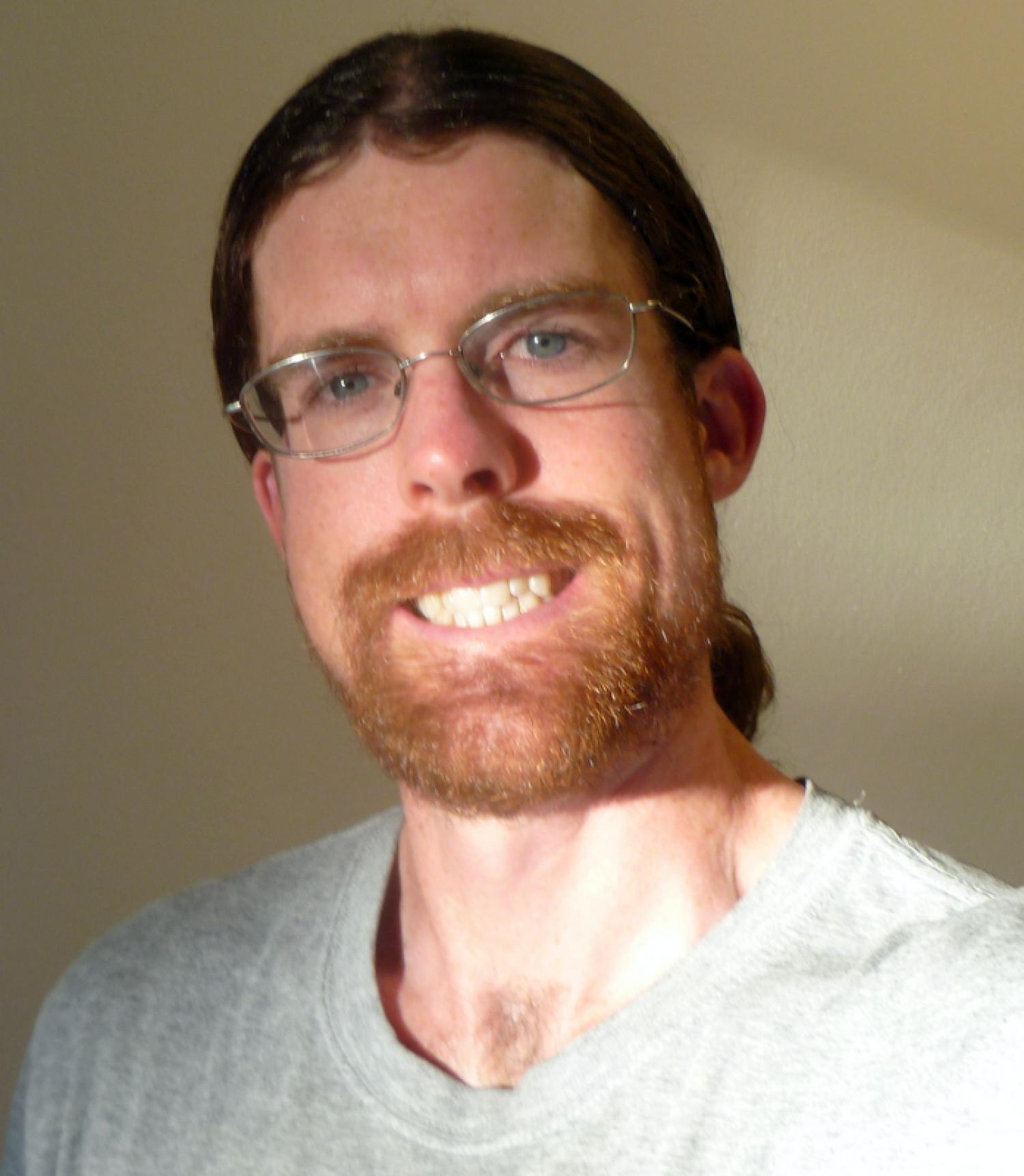Graduate Student Spotlight - Chris Dunn, Environmental Studies

Q: Tell us about you – what program are you in, what year in your studies, and what do you research?
A: I am finishing up a PhD program in Environmental Studies. I am in my 6th year! I just successfully defended! My research is primarily in environmental philosophy, developing what I call a wild ethics, though I integrate many disciplines and environmental topics.
Q: What excites each of you most in your fields right now and why? How does your excitement relate to your experience at the 2021 United Nations Climate Change Conference?
A: One thing I am excited about is an upcoming exhibit I am putting together (with a few helping hands) as a NEST fellow. It will be an immersive multimedia experience (photography, video, and sound) structured around a spatial journey of descent from the world’s highest glaciers surrounding Mount Everest to the ocean by way of Greenland and Iceland, following the course of terrestrial ice as it melts and contributes to rising seas. It will be at the Benson Earth Science Library and should be completed by the end of December.
There was actually a good deal of art in and around COP26, which I appreciated, though whether it really made a practical difference is harder to say.
Q: What were your biggest takeaways from attending COP26?
A: I learned so much about the process, the players, and what goes on (to some degree) behind the scenes. There was a steep learning curve to figure out where I needed to be and when that may have deprived me a bit, but through dumb luck and persistence, I think I was on the high end of success. I was not able to witness as much of the raw negotiations as I would have liked as most of these are closed-door, which I understand may be something of a departure from past COPs.
Attending COP26 in person made it very real for me. It is absolutely astounding that such a process is occurring. The fact that we identified climate change, that we know it is happening, is alone pretty astounding. And that the world has come together, despite so many other disagreements, tense relations, and disparate approaches to governing, to repeatedly work on this is a feat in itself. Some of my PhD studies have focused on issues related to climate change, so I know a great deal about the subject, and it has long been a central concern of mine, but to see flesh and blood people from all over the world in a context solely focused on this issue was a whole other level of reality for me.
I was there mainly to learn, but also to document the proceedings through writing and photography. I did not attend as an advocate, subject-matter expert, or negotiator, but any of these might be possibilities in the future.
I left with really conflicting emotions: disappointment and amazement, hope and fear, certainly exhaustion. It was my first time right in the center of a historical event and it was energizing even as it wore me out.
Q: What is the most impactful piece of advice you ever received in relation to your expertise and field of study? What advice would you give to those looking to attend COP27?
A: I’m not sure, but here is a piece of advice from me: a PhD program is as much an intellectual struggle as a psychological one and should be approached as such by anyone attempting to complete one. It is sort of a perfect storm of uncertainty, challenge, dependence, and isolation. Take care of yourself and find helpful resources to get through.
*Chris Dunn was the recipient of the CHA's Eaton Research Award to attend COP26 in 2021.


